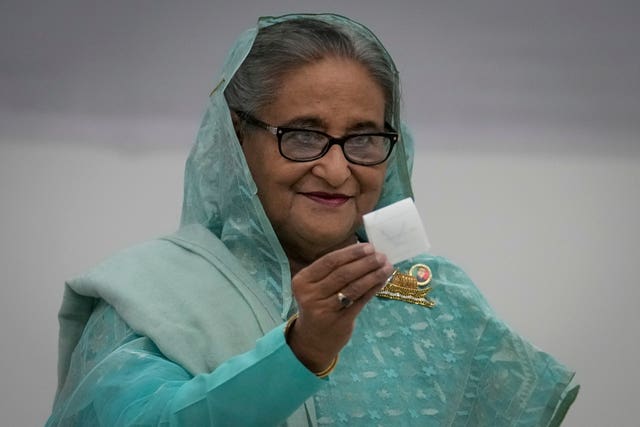


Bangladesh’s top court has scaled back a quota system for government job applicants after it led to nationwide unrest and deadly clashes between police and protesters that have killed scores of people.
The Supreme Court has ordered that 93% of government jobs should be allocated on a merit-based system, leaving the remaining 7% for relatives of veterans who fought in Bangladesh’s war of independence in 1971 and other categories.
Earlier, the system reserved 30% of such jobs for the relatives of war veterans.
Sunday’s verdict comes after weeks of demonstrations – mostly led by students – that turned deadly on Tuesday after protesters began clashing with police.
During the week, police fired tear gas and rubber bullets and hurled smoke grenades to scatter stone-throwing protesters who filled the streets and university campuses.
Sporadic clashes in some parts of Dhaka, the capital, were reported on Saturday but it was not immediately clear whether there were any fatalities.
Bangladeshi authorities have not shared any official numbers of those killed and injured, but local media reports said on Saturday that at least 103 people have been killed.
Ahead of the court’s hearing, soldiers patrolled cities across the South Asian country, while a nationwide curfew and an internet blackout continued to remain in force.
Home minister Asaduzzaman Khan said the curfew will be relaxed from 3pm to 5pm on Sunday for people to run essential errands.
Meanwhile, prime minister Sheikh Hasina’s government has declared Sunday and Monday as public holidays, with only emergency services allowed to operate.
The chaos highlights cracks in Bangladesh’s governance and economy and the frustration of young people who lack good jobs upon graduation.

It also represents the biggest challenge to Ms Hasina since she won a fourth consecutive term in office after January’s elections, which were boycotted by the main opposition groups.
Protesters argue the quota system is discriminatory and benefits supporters of Ms Hasina, whose Awami League party led the independence movement, saying it should be replaced with a merit-based system.
Ms Hasina has defended the quota system, saying veterans deserve the highest respect for their contributions in the war against Pakistan, regardless of their political affiliation.
Representatives from both sides met late on Friday in an attempt to reach a resolution and law minister Anisul Huq said the government was open to discussing their demands.
The main opposition Bangladesh Nationalist Party (BNP) has backed the protests, vowing to organise its own demonstrations as many of its supporters have joined the student-led protests.
However, BNP said in a statement its followers were not responsible for the violence and denied the ruling party’s accusations of using the protests for political gains.
The Awami League and the BNP have often accused each other of fuelling political chaos and violence, most recently ahead of the country’s national election, which was marred by a crackdown on several opposition figures.
Ms Hasina’s government had accused the opposition party of attempting to disrupt the vote.